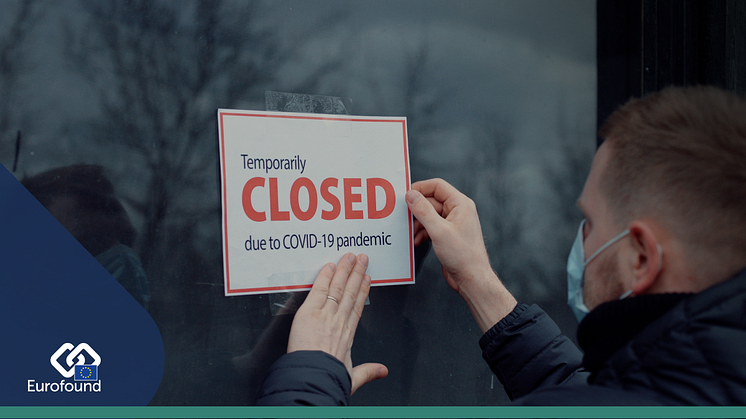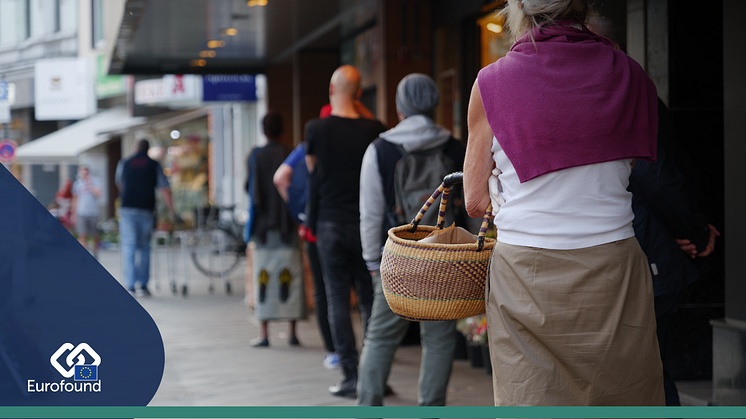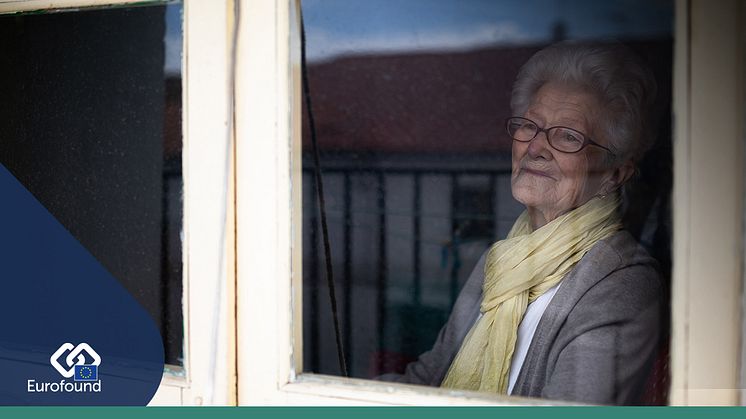
Blog post -
Two worlds of income support during COVID-19
Blog by Tina Weber
To date, close to six million workers in the EU have lost their jobs due to COVID-19. Many businesses have closed their doors forever or been pushed to the brink, bringing severe financial and psychological hardship to the individuals and families affected. However, the toll of the pandemic could have been even greater had it not been for the adoption of unprecedented assistance measures in all Member States, supported by the European Union, including through the SURE (Support to mitigate Unemployment Risks in an Emergency) initiative in 18 countries. But have these policies benefited different groups in the labour market equally, or have they cemented existing inequalities in access to support, effectively creating two worlds of income support during the pandemic?
Short-time working as a new panacea
In response to the COVID-19 crisis, nine Member States introduced new short-time working or similar employment and income protection schemes to assist companies and their employees. Most of the other 18 Member States, which already had such measures in place, adapted them to the changed requirements. This means that all EU countries have had such provisions in place during the pandemic, demonstrating that lessons on the positive effect of short-time working have been learnt from the economic and financial crisis.
However, schemes differ significantly in relation to eligibility, level of support and duration of access. For example:
- Only 7 countries explicitly include some workers on casual contracts, such as seasonal or domestic workers, and 11 countries preclude access to temporary agency workers.
- A quarter of all Member States reserve access to short-time working schemes to employers who have experienced a drop in revenue of more than a quarter and/or who have had to reduce working time for over 30% of their workforce.
- The income replacement rate received by employees for the hours not worked ranges from 60% to 100% (see the figure below for a breakdown by Member State), with the level of income actually received sometimes significantly below this rate as a result of caps applied to maximum payments granted.
- Although COVID-19-specific schemes usually ensure that the state continues to cover social insurance and pension contributions based on the average rate of pay received prior to the crisis, this is not the case in all countries.
- Duration of access varies from 2 to 21 months.
Maximum replacement rates available through employment protection schemes, March–September 2020 (% of previous salary)

Note: Croatia was excluded as it is challenging to calculate the replacement rate.[1] Lithuania has been excluded as the replacement rate is linked to the minimum monthly wage (MMW).[2] Malta has been excluded as it offers a flat-rate payment depending on the sector.
Source: Authors, based on information provided by the Network of Eurofound Correspondents
Estimates available from a limited number of countries show that short-time working schemes reduced the drop in household incomes during the most severe lockdown in the first wave from -22% to -7%. This confirms the findings of the Eurofound Living, working and COVID-19 survey, which shows that individuals benefiting from such schemes are less likely to experience financial hardship.
Differences also arise in relation to dismissal protection for workers beyond the period of eligibility for short-time working allowances. This ranges from 1 month to over 12 months. Austria, Greece, Italy, the Netherlands (in the first phase of support) and Portugal extended dismissal protection beyond the worker benefiting from the allowance to the employer’s whole workforce. The presence of such protections is likely to become increasingly relevant as supports are phased out and the duration of lockdown measures puts more and more businesses in peril.
Crisis prompts previously unthinkable support for self-employed
The need to act swiftly to protect livelihoods in a situation where public health restrictions led to business closure or severe economic impact for many self-employed prompted governments in at least three-quarters of EU countries to implement income support measures for this group. While previously unthinkable in their scale and content, the level of income support offered to self-employed workers nonetheless largely fell short of the financial assistance provided to employees.
As is the case with short-time working and temporary unemployment schemes for employees, eligibility criteria led to the limitation of support to certain groups of self-employed. Among the most important of these criteria was a requirement to demonstrate a certain level of income loss. This left many outside the ‘umbrella’ of such protections.
The example of 11 Member States in the table below shows that in 9 of these countries the eligibility requirements to receive support are more stringent in relation to income support for the self-employed than for employees, leading a higher share of self-employed not being able to access support.
Table: Comparison of eligibility criteria for access to income support schemes for employees and self-employed linked to minimum requirements regarding reduction in income or turnover (data up to September 2020)
Note: The percentages in the table represent the reduction in income or turnover that must be demonstrated in order to get access to the support schemes. In the case of some short-time work schemes, the requirement relates to the impact on a specific share of the workforce.
Similarly, in 7 out of these 11 countries, the income replacement offered to the self-employed is a flat rate rather than income related, meaning that the income granted to the self-employed is at or below the national minimum wage in at least half of countries.
A multiverse of access levels
It is important to note that these measures relate to the ‘entrepreneur’s wage’, which can in many countries be claimed in addition to any public assistance linked to business-related fixed costs. Nonetheless, this demonstrates that despite the introduction of income supports for the self-employed who previously had no or limited access to such assistance, it remains a case of ‘two worlds of income support’ in most countries when comparing the protections available to employees and the self-employed.
If we add to these the differences in eligibility and supports available to short-time working schemes for employees, what has in fact emerged is a ‘multiverse’ of difference in access to crucial income and employment protection, which has left those already vulnerable prior to the pandemic at greater risk of hardship.
Further information:
- Publication: COVID-19: Implications for employment and working life
- Publication: Living, working and COVID-19
- Data: COVID-19 EU PolicyWatch
- European Restructuring Monitor: Restructuring support instruments
Footnotes:
[1] Under the Croatian scheme, if working hours were reduced by 50%, workers were eligible for 50% support for wages, up to a maximum of €266. If working hours were reduced by 25%, workers were eligible for 25% support for wages, up to a maximum of €133. For reductions in working hours of 10%, support up to a maximum of €53 was provided.
[2] For employees aged up to 60 years, employers could choose whether a subsidy of 90% or 70% of the previous salary was provided. If an employer contributed 10% and chose a 90% subsidy, the state contributed a maximum of 1 MMW (€607 gross); if the employer contributed 30% and chose a 70% subsidy, the state contributed more – 1.5 MMW (€910.50 gross). Wages accrued during idle time could not exceed those fixed earlier in the employment contract. For employees aged 60+ years, if the employer chose a 100% subsidy, the state contributed a maximum of 1 MMW (€607 gross); if the employer chose a 70% subsidy, the state contributed 1.5 MMW (€910.50 gross)
Disclaimer: Please note that this blog was updated with revised data (specifically for Bulgaria) on 24 March 2021.







